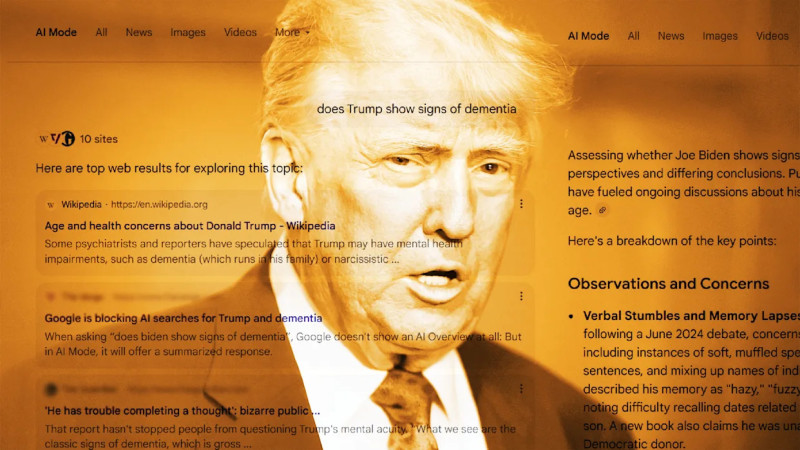In the latest twist to ongoing questions about President Donald Trump's cognitive health, reports emerged this week accusing Google of suppressing search results linking the 79-year-old leader to dementia. Users attempting queries like "does Trump show signs of dementia" found their AI overviews mysteriously blank, while similar searches about past presidents yielded detailed responses. This apparent censorship has fueled outrage among critics, who argue it's an attempt to shield Trump from scrutiny over his increasingly erratic public appearances.
Indeed, concerns about Trump's mental acuity aren't new. For years, linguists and psychologists have dissected his speeches, noting a marked rise in rambling tangents and repetitive phrases. A recent analysis of his rallies showed average lengths stretching to 82 minutes—up from 45 in 2016—with a 69% spike in swear words and a shift toward more negative, all-or-nothing language. Experts point to these as hallmarks of cognitive decline, possibly early dementia. Bruises spotted on his hands multiple times since late 2024 have only added to the speculation, though the White House dismisses it all as partisan attacks.
However, the Google flap has intensified the debate. Illinois Governor JB Pritzker bluntly claimed Trump exhibits dementia symptoms, echoing psychiatrists like Dr. Lance Dodes, who once described the evidence as "overwhelming." Dodes highlighted Trump's confusion over basic facts, from crowd sizes to historical events, as red flags that could impair leadership. Even allies admit his style has evolved, but they frame it as passionate authenticity rather than decline. Still, with Trump refusing to release full medical records since 2015—despite promises—questions linger about transparency in the Oval Office.
Moreover, this isn't just tabloid fodder; it's a reminder of how age weighs on power. At 79, Trump would be the oldest president ever inaugurated if re-elected, and his recent DJ stint at a rally or 40-minute silent sway to music onstage have raised eyebrows even among neutrals. Critics say the press has "sanewashed" these moments, much like they did with Biden years ago. But as the 2025 political cycle heats up, one can't help but wonder: when does vigorous debate cross into denial of evident frailty?


